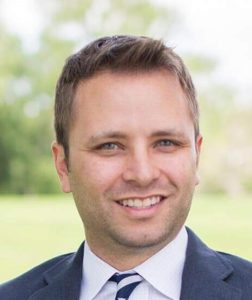New American Psychological Association guidelines labeling “traditional masculinity ideology” bad for male health aren’t sitting well with religious leaders who hold a “complementarian” view of what the Bible teaches about gender.
First-time guidelines to help psychologists work with men and boys adopted in August but just being made public challenge patriarchal norms often identified in the #MeToo era as “toxic masculinity.”

Albert Mohler
But Albert Mohler, president of Southern Baptist Theological Seminary in Louisville, Kentucky, said the 31-page APA report goes beyond toxic masculinity to “the basic difference between men and women.”
The guidelines define masculinity ideology as “a set of descriptive, prescriptive, and proscriptive of cognitions about boys and men.” While there are different masculine ideologies, the report identifies “a particular constellation of standards that have held sway over large segments of the population, including: anti-femininity, achievement, eschewal of the appearance of weakness, and adventure, risk, and violence.”
According to the guidelines, studies show boys are disproportionately represented among schoolchildren with learning difficulties including lower scores on standardized tests and behavior problems like bullying, school suspension and aggression.
Men are overrepresented in prisons and more likely both to commit and be victims of violent crime.
Components of traditional masculinity such as emotional stoicism, homophobia, self-reliance and competitiveness make it harder for males to bond closely with other men.
“Trauma-related avoidance response to difficult emotional situations and uncomfortable affective states” is connected to alcohol use and suicide.
“We discover that in order to attempt not to make persons confused about their gender, harmed or further confused, the entire society is supposed to confuse the fact that there is supposed to be some difference between men and women.”
Gendered social roles are linked to high-risk behaviors like seat belt use, fighting, smoking and going to the doctor for a physical exam.
Many men struggling emotionally do not see a psychologist because of cultural norms that equate asking for help with weakness and shame.
Teenage boys are significantly more likely than girls to carry a gun to school, and nearly every school shooter in the last 30 years has been an adolescent male. Ninety percent of U.S. homicides are committed by men, and 77 percent of all homicide victims are male.
The guidelines say masculinity ideology also affects women and non-conforming males.
Overall, men experience a greater degree of social and economic power than women. Male privilege comes at a cost of adhering to sexist ideologies designed to maintain dominance. Controlled experiments show adult men who endorse sexist male norms are more likely to be aggressive toward women who resist.
A 2015 study found that men who rigidly adhere to patriarchal norms commit higher levels of intimate partner and sexual violence toward women.
Traditional masculinity also encourages men to approach sexuality in ways that emphasize promiscuity and other aspects of risky behavior like not using a condom.
Boys with feminine identities or expressions “face especially negative reactions” to non-normative expressions such as passivity or crying. Research shows such boys are more likely to face verbal and physical abuse from peers, possibly leading to problems like depression, self-injury and suicide.
Mohler, a member of the Council on Biblical Manhood and Womanhood, said in a Wednesday podcast that while “certain dimensions of traditional masculinity … can be distorted,” the APA guidelines cannot “be honestly and consistently squared with any form of historic biblical Christianity.”
“So here is one of the most incredible insights you gain from all of this,” Mohler said of the guideline document. “We discover that in order to attempt not to make persons confused about their gender, harmed or further confused, the entire society is supposed to confuse the fact that there is supposed to be some difference between men and women.”
The Danvers Statement outlining views of the Council on Biblical Manhood and Womanhood says “distinctions in masculine and feminine roles are ordained by God as part of the created order, and should find an echo in every human heart.”
In marriage that means the “husband’s loving, humble headship” and “willing, joyful submission” by the wife.
In 2017 the CBMW, in partnership with the Ethics and Religious Liberty Commission of the Southern Baptist Convention, issued a follow-up Nashville Statement opposing same-sex marriage and declaring “that adopting a homosexual or transgender self-conception” is a sin.

Owen Strachan
Last March the council added a statement condemning abuse as “destructive and evil” and “in direct opposition to the purposes of God.” At the same time, CBMW believes “that the biblical teaching on relationships between men and women does not support, but condemns abuse.”
Owen Strachan, former president and executive director of the Council for Biblical Manhood and Womanhood, criticized the new APA guidelines on Twitter as “hot garbage.”
“The culture that stigmatizes men primes them to fail,” said Strachan, associate professor of Christian theology at Midwestern Baptist Theological Seminary in Kansas City, Missouri. “Instead of shaming men, we should: 1) Inspire men 2) Call them to leadership 3) Teach them nobility & virtue 4) Train them to manage emotion 5) Harness their abilities for good 6) Call them to Christ.”
Fredric Rabinowitz, one of the lead writers and a professor of psychology at the University of Redlands, said the primary purpose of the new guidelines is to help men and boys lead happy, healthy lives.
“We see that men have higher suicide rates, men have more cardiovascular disease and men are lonelier as they get older,” he told the New York Times. “We’re trying to help men by expanding their emotional repertoire, not trying to take away the strengths that men have.”
